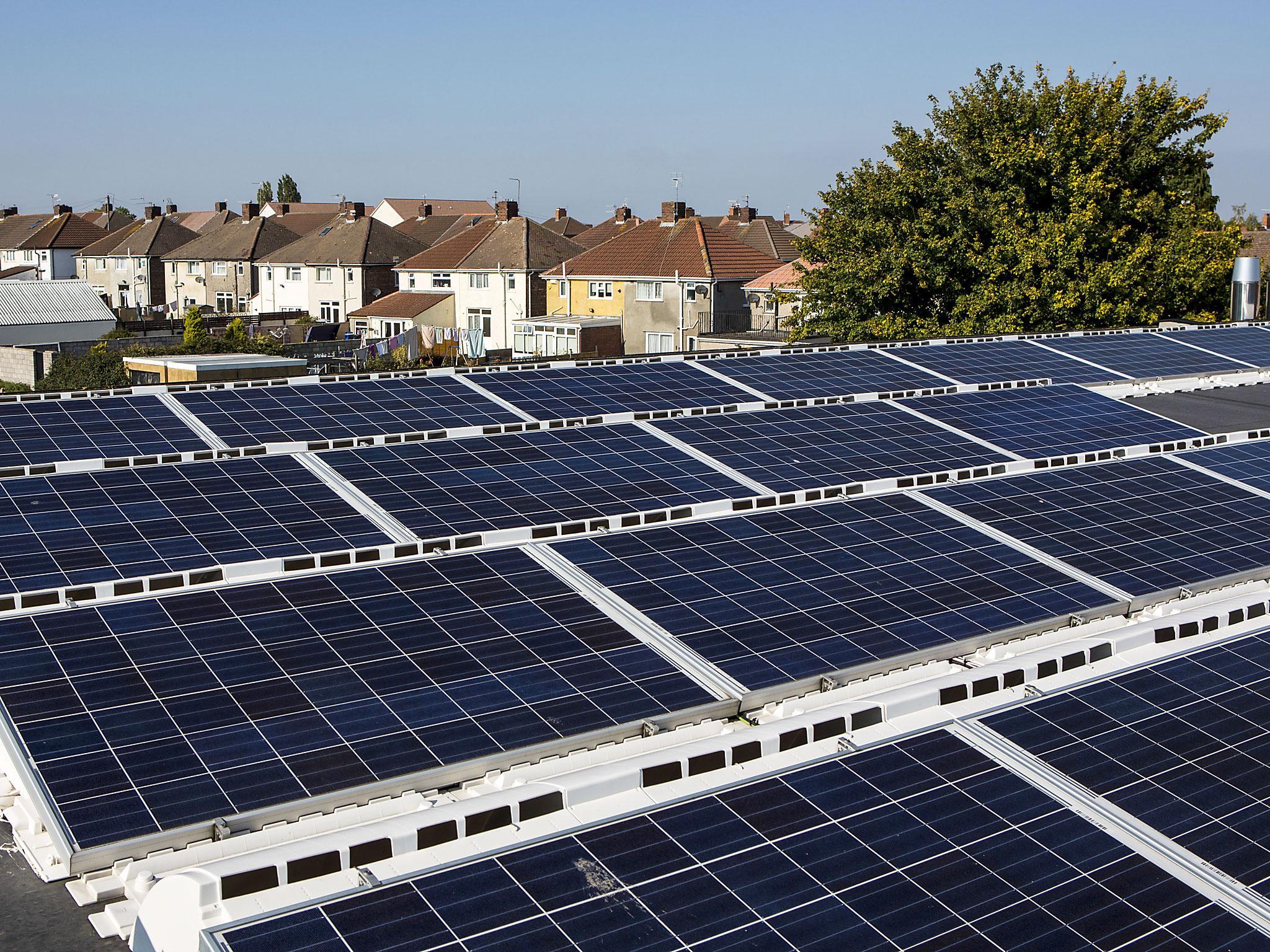Budget 2017: Solar industry facing devastating 800% tax increase
Some businesses and schools that generate electricity from rooftop solar panels will have to pay rates for the first time, while others will face a massive tax rise

Britain’s solar industry is facing devastation and consumers could see energy bills rise after the Chancellor Philip Hammond refused to listen to pleas to cancel a planned tax hike of up to 800 per cent on rooftop solar schemes.
The Solar Trade Association described the Government’s refusal to bend over the increase – due to come into force in April – as “nonsensical” and “absurd”.
Bizarrely, state schools with solar panels will be forced to pay, while private schools will remain exempt.
Mr Hammond barely mentioned the energy sector in his speech – apart from a promise to help the oil and gas industry “maximise exploitation” of the remaining reserves in the North Sea.
According to the Government’s own figures, solar power is expected to become the cheapest form of electricity generation sometime in the 2020s.
But the UK solar industry lost 12,000 jobs last year and there has been an 85 per cent reduction in the deployment of rooftop solar schemes.
So the sector had hoped the Government would listen to their request to drop the huge increase in business rates affecting rooftop solar from next month.
Some 44,000 solar “microgenerators” who are currently exempt from business rates could be faced with a bill of hundreds, or even thousands, of pounds.
Speaking after reading the detail of the Budget in Treasury documents, Leonie Greene, of the Solar Trade Association, told The Independent: “Fair to say we are dismayed. We are facing an extreme business rate rise of up to 800 per cent.
“Listening to what the Chancellor said today, there was no mention of energy apart from oil and gas.
“I have to say we are astonished because deployment of solar is at a six-year low.
“This is slightly less than helpful for the British solar industry… it’s absurd. Energy tax policy is going in the opposite direction to how we know energy needs to change and how it is changing.
“What he is doing is advantaging old technology and disadvantaging new ones. It’s nonsensical.”
The tax hike affects businesses that install solar panels and use the electricity themselves.
But Ms Greene stressed consumers would end up paying more for their energy because of the overall downturn in the industry, which she said was also being “shut out” of the wholesale power market.
“That is crazy because it is the cheapest and most popular source of energy. What that means is consumers are paying more. We are taking away the competitive pressure solar has put on other technologies.
“We need something to change for the solar industry. We are just trying to get a level playing field with fossil fuels.”

James Court, head of policy at the Renewable Energy Association, said technologies like solar “are unstoppable”.
But he warned: “The UK is going to be left behind while the rest of the world is steaming ahead with renewable deployment.
“Solar and onshore wind are potentially already cheaper than new gas and certainly cheaper than new nuclear, so we are locking ourselves into an overly ‘fossilised’ and more expensive energy future.”
In his speech, Mr Hammond made no mention of the solar industry, climate change, the environment or air pollution. There had been hopes that he would increase taxes on polluting diesel vehicles.
But he did say he had “heard… the calls by North Sea oil and gas producers and the Scottish government to provide further support for the transfer of late-life assets.
“As UK oil and gas production declines it is essential that we maximise exploitation of remaining reserves and so we will publish a formal discussion paper in due course,” Mr Hammond said.
Other key decisions affecting renewable energy, such as the price levied on carbon emissions by big companies after Brexit, were also put off until later, creating uncertainty that could dissuade potential investors.
ClientEarth, a group of environmental lawyers that has twice successfully taken the Government to court to force it to come up with an effective plan to reduce air pollution, said the Budget showed Mr Hammond had “failed to grasp the severity of the UK’s air quality crisis”.
James Thornton, ClientEarth’s chief executive, said the Government should have imposed a new charge on new diesel vehicles to send “a strong signal” that it planned to deal with the public health problems caused by air pollution.
“Despite being ordered twice by the courts to take urgent steps to tackle the country’s air pollution crisis, it seems the Treasury has still not grasped the urgency of the situation,” he said.
“We fear that Government plans [on air pollution], which are due out next month, may well fall short of what is needed.”
A Treasury document issued in support of the Chancellor’s statement to the House of Commons said the Government was “committed to improving air quality” and would “continue to explore the appropriate tax treatment for diesel vehicles”.
Join our commenting forum
Join thought-provoking conversations, follow other Independent readers and see their replies
Comments
Bookmark popover
Removed from bookmarks